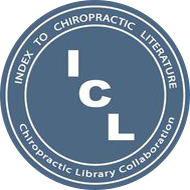Objective: The shift toward evidence-based health care has reoriented tertiary clinical education in a way that necessitates and incorporates research. This study assesses the inclination and suitability of chiropractic students for research over a 5-year educational program.
Methods: Research attributes of chiropractic students were assessed in this cross-sectional study using a validated and modified academic self-concept analysis scale. Students in first and final year were assessed in 4 domains: creativity, motivation, self-regulation, and general intellectual ability. Univariable differences were assessed using Welch 2-sample t tests, and multivariable analysis was carried out with multiple linear regression models.
Results: The response rate was 71% (n = 165). First- and fifth-year students scored highly on all 4 domains (80% to 96%). Compared to first-year students, fifth-year students rated themselves significantly lower in 3 of the domains: general intellectual abilities (t[126] = −2.01; p = 0.047), motivation (t[115] = −4.82; p < 0.001), and creativity (t[136] = −3.00; p = 0.003).
Conclusion: Research suitability is high in chiropractic students. Both cohorts scored high in all domains despite the disparity between first and fifth years. First-year students outperformed fifth-year students in 3 domains, indicating a potential decline in the inclination to do research over time. However, unaccounted factors, such as the Dunning-Kruger effect, life changes, and “burnout,” may have contributed to these differences. Future studies should include questions about stress, fatigue, clinical orientation, and educational environment to inform the interpretation of findings.
Author keywords: Chiropractic, Cross-Sectional Survey, Education, Motivation, Research, Students
Author affiliations: Macquarie University. Faculty of Science and Engineering. Department of Chiropractic (Australia / New South Wales / Sydney)
This abstract is reproduced with the permission of the publisher. Click on the above link for free full text.
|
